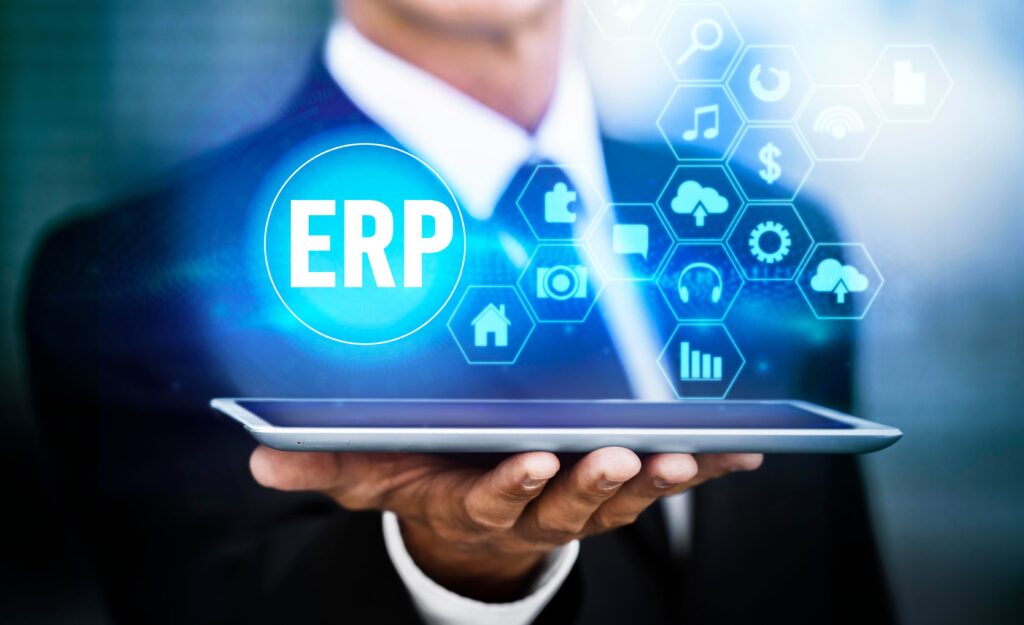Mobile ERP: Empowering Workforce Mobility and Collaboration

Mobile ERP: Empowering Workforce Mobility and Collaboration
In this blog, we will explore the growing trend of mobile Enterprise Resource Planning (ERP) solutions, explaining how they enable employees to access critical business information anytime, anywhere, and foster collaboration across teams.
Traditionally, Enterprise Resource Planning (ERP) systems have been desktop-based, necessitating office computer access. However, with the increasing need for flexibility and remote work, mobile ERP solutions are becoming more popular. This blog will explore the benefits and functionalities of mobile ERP systems and how they enhance workforce mobility and collaboration.
- What is Mobile ERP?
Mobile ERP refers to ERP software that is accessible on mobile devices like smartphones and tablets. These solutions provide employees with real-time access to business data, enabling them to perform various tasks and make informed decisions while on the move. Mobile ERP applications typically offer a subset of functionalities found in the desktop version, optimized for smaller screens and touch interfaces.
- Benefits of Mobile ERP
- Enhanced Accessibility: Mobile ERP enables employees to access critical business information from anywhere with an internet connection, reducing dependency on office-based systems.
- Improved Productivity: By allowing employees to complete tasks on the go, mobile ERP systems enhance productivity and efficiency, enabling faster decision-making and response times.
- Workforce Mobility: With mobile ERP, field workers, sales representatives, and remote employees can stay connected to the organisation’s systems and data, regardless of their location.
- Collaboration: Mobile ERP fosters collaboration among team members by enabling real-time communication, document sharing, and access to centralised project information.
- Flexibility: Mobile ERP solutions offer flexibility in how and where work is performed, accommodating diverse work styles and remote work arrangements.
- Features of Mobile ERP
- Real-Time Data Access: Mobile ERP applications provide real-time access to critical business data, including sales figures, inventory levels, and customer information.
- Task Management: Users can manage tasks, create to-do lists, and track project progress directly from their mobile devices.
- Collaboration Tools: Mobile ERP solutions often include collaboration features such as instant messaging, discussion forums, and document sharing.
- Reporting and Analytics: Employees can generate reports, view analytics dashboards, and analyse data trends using mobile ERP applications.
- Security: Mobile ERP systems employ robust security measures to protect sensitive business information, including encryption, multi-factor authentication, and remote data wipe capabilities.
- Case Studies and Success Stories
- A manufacturing company implements a mobile ERP solution, allowing factory supervisors to monitor production schedules and inventory levels from their smartphones, resulting in improved efficiency and reduced downtime.
- A sales team adopts a mobile CRM module within their ERP system, enabling sales representatives to access customer data, update leads, and track sales opportunities while on client visits, leading to increased sales and customer satisfaction.
Conclusion
Mobile ERP solutions are crucial in enabling workforce mobility and collaboration, allowing employees to access critical business information and perform tasks from anywhere, at any time. By leveraging mobile ERP systems, organizations can enhance productivity, streamline operations, and maintain competitiveness in today’s fast-paced business environment.
Should you require any assistance or further guidance, you can contact us. Our team is readily available to support you and address any queries you may have. We’ll be more than happy to assist you.

